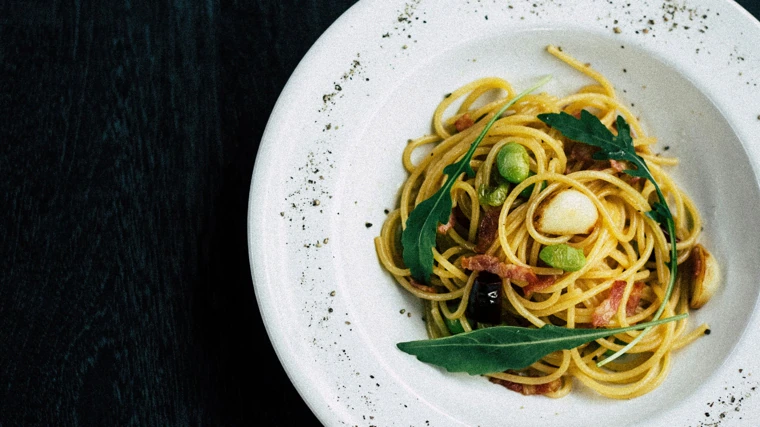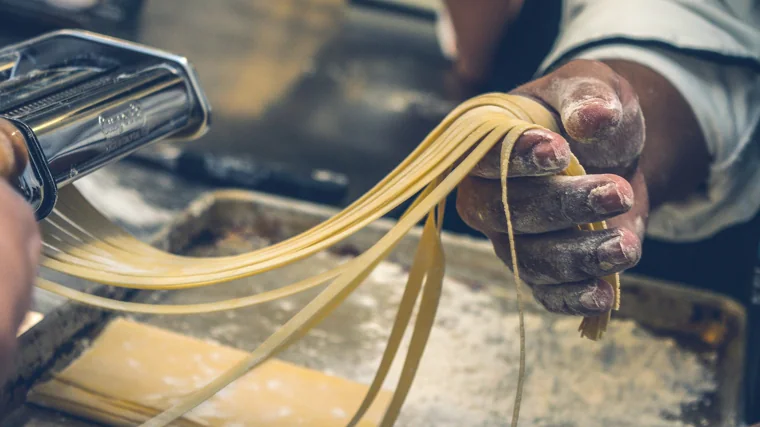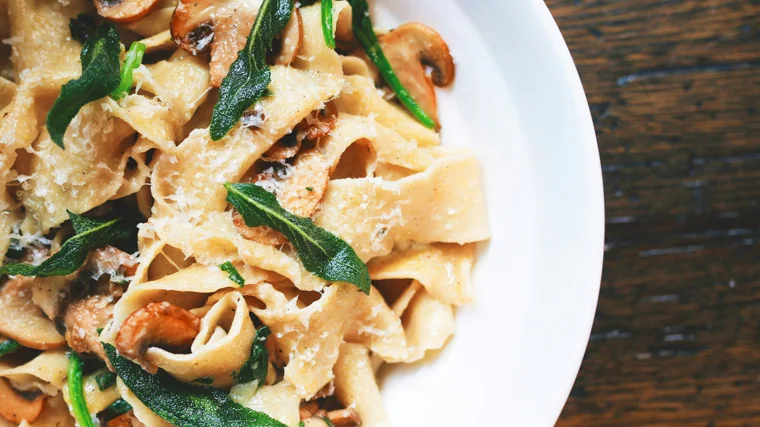On October 25, the World Pasta Daya food loved in kitchens around the world for its versatility, its flavor and how easy it is to prepare it.
However, pasta continues to generate many doubts, especially when we think about its consumption at dinner time. Is it true that eating pasta makes you fat? How can we enjoy pasta in a healthy way? As a nutritionist, today I clarify some myths and give you advice to be able to consume pasta in a balanced diet without fear of gaining weight.
Does pasta make you fat?
The myth that pasta makes you fat has lived with us for years, but the reality is that, like any food, everything depends on how it is consumed.
The pasta itself is not the problem. Rather what usually cause weight gain It is, on the one hand, the size of the portions, the type of pasta we choose and the ingredients with which we accompany it.
Is it true that eating pasta makes you fat?
The whole wheat pasta It is a source of complex carbohydrates that provides slow-release energy, making it a suitable food for many people, especially athletes and people with high energy expenditure.
The problem comes when the portions are excessive or high-fat sauces, such as carbonara, or a lot of cheese are added. If we opt for this type of accompaniment frequently, it is very likely that the caloric intake will be greater than what our body needs, which can lead to weight gain.
Is it bad to have pasta for dinner?
One of the most common concerns is whether eating pasta will lead to weight gain. The answer is not a simple yes or no. Eating pasta doesn’t have to be fattening, as long as you choose the right type, the right amount, and combine it with balanced ingredients. In fact, pasta can be a excellent option for dinner if consumed in moderation and accompanied by foods rich in fiber and some source of protein.
When we eat dinner, our body still needs energy, and pasta, being rich in carbohydrates, can help replenish glycogen stores in the muscles, especially after a day of activity. The trick is to control the quantity and avoid heavy or difficult to digest combinations.

Is it true that eating pasta makes you fat?
Tips for eating pasta healthily
– Choose whole wheat or legume pasta: Whole wheat pasta contains more fiber than refined pasta, which helps regulate blood sugar levels and increases satiety. In addition, there are other options such as chickpea, lentil or pea pasta, which are rich in vegetable proteins and fiber.
Control portions: An adequate serving of pasta is usually between 60 and 80 grams of dry (or raw) pasta per person. This translates into an amount that provides energy without exceeding daily caloric needs.
– Accompany it with vegetables: Pasta combines perfectly with all types of vegetables. Spinach, zucchini, tomato, peppers or mushrooms, options that add color, flavor and nutrients to your dish without increasing the caloric value of the dish. In addition, vegetables help increase the volume of the dish, making it more satiating without adding many calories.

Is it true that eating pasta makes you fat?
– Use light sauces: Opt for sauces based on natural tomato, aromatic herbs, extra virgin olive oil or yogurt instead of sauces made with cream and other fats that make them heavier. Homemade sauces made with fresh ingredients are always a better option than processed ones.
– Includes healthy proteins: Adding a quality protein source to pasta is key to creating a balanced dish. You can opt for lean animal proteins such as chicken, turkey, fish, shellfish, or plant protein sources such as tofu or textured soybeans.
– Control cheese consumption: Cheese is a common ingredient in pasta dishes, but it is important to moderate its amount due to its high fat and calorie content, especially if they are aged cheeses such as Parmesan.
How to cook pasta in a healthy way
The way we cook pasta also has an impact on its nutritional quality, especially in its relationship with blood sugar levels:
1. Cook al dente: Pasta should be cooked al dente (slightly firm), as this influences its glycemic index (GI). Pasta cooked al dente has a lower GI compared to overcooked pasta. This way its digestion is slower and we avoid rapid glucose spikes.
2. Cooking time: The ideal cooking time for pasta (al dente) is usually between 8 and 12 minutes, this will depend on the type of pasta and its thickness. Cooking pasta longer increases the glycemic index, which can cause carbohydrates to break down more quickly into simple sugars, raising blood glucose levels more quickly.

Is it true that eating pasta makes you fat?
Pasta as part of a balanced diet
Pasta, in an amount appropriate to each person, can be part of a balanced diet. It is not about eliminating foods completely, but about learning to consume them in a conscious and balanced way. By opting for healthier options such as whole wheat pasta, moderating the portions and accompanying it with nutritious ingredients, we can enjoy this food without worrying about weight gain.
Remember to add vegetables to your pasta, a source of quality protein and do not exceed the amount of cheese and avoid fattier sauces, this way you can enjoy pasta in a healthier way without having to eliminate it from your diet.
You can learn more about nutritionist Elisa Escorihuela through her Instagram account: @eliescorihuela, her work at the Nutt Nutrition Center and in her book ‘Dietoterapia’. You can also read all the nutritional recommendations contained in their articles in ABC’s ‘Nutrition Classroom’.
#true #eating #pasta #fat

